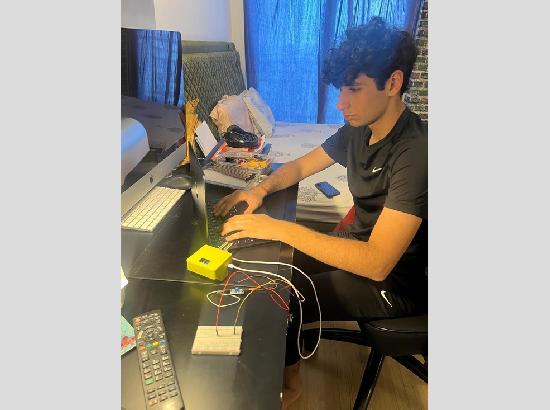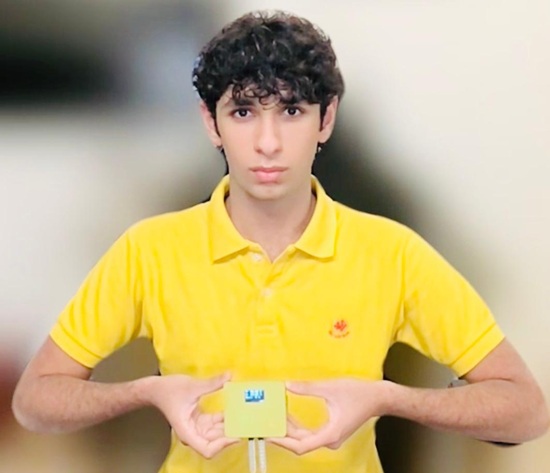
Photo Source: Babushahi Bureau
Haryana teen develops smart tree health device ‘Trevive’ to combat climate change
Abeer Gosain’s invention bags Design Patent and three Copyrights from GOI
Babushahi Bureau
Chandigarh, July 14, 2025: At a time when climate change, deforestation, and soil degradation continue to threaten ecosystems across the globe, a 17-year-old student from Haryana who is also an aspiring environmental engineer, has stepped forward with a promising solution.
Abeer Rohan Gosain, a Class XII student, has designed ‘Trevive’, a low-cost, Internet of Things (IoT) -powered system that monitors the health of trees and plants in real time.
His work has already earned a Design Patent and three Copyrights from the Government of India, formalizing the uniqueness of both the device’s hardware and its proprietary software algorithms.

Explaining how Trevive works, Abeer said, “Using a suite of sensors, Trevive collects plant data like soil conditions, air temperature, soil moisture, humidity, pH, electrical conductivity, and vital nutrients like nitrogen (N), phosphorus (P), and potassium (K). This data is transmitted via Bluetooth Low Energy (BLE) to a multilingual, voice-enabled mobile app available on both Android and iOS.”
Abeer has written to senior officers including Secretary, Department of Agriculture and Farmers Welfare, Government of Haryana. Says Abeer, “What I really want for Trevive and my sensors is that they be used by the state’s forest department, agroforestry communities, and NGOs.”
According to him, “What really excites me is how Trevive turns complex environmental data into something simple and actionable. It doesn’t just tell you that soil moisture is low. It tells you your tree is at risk and needs watering. That clarity is crucial.”
Data is sampled every ten minutes to conserve battery, and the information is uploaded to the cloud for remote monitoring and analytics. This allows timely alerts and decision-making, even in large-scale plantations or remote agricultural zones.
Notably, in its pilot phase, Trevive was deployed on more than 2,240 trees across different regions of India.
The results were compelling: a 35 per cent improvement in tree health, more than 740 trees saved from drying out, and alerts triggering corrective action within 48 hours in over 90 per cent of critical cases.
Says Abeer. “Those healthy trees collectively prevented over 12 tons of carbon dioxide from entering the atmosphere. That’s a tangible impact.”
Abeer’s sensors are ready for scaled-up deployment, and he is actively seeking partnerships with conservation organizations, government bodies, and agricultural tech incubators.
The voice-enabled app is built for inclusivity, translating environmental data into regional languages and providing feedback in real-time.
“It’s important that anyone, whether a school student or a farmer in a remote village, can understand what’s going on with their trees,” says Abeer. “Technology must bridge gaps—not create new ones.”
Abeer in conclusion, said , “My goal is to use my skill and technical know-how to create real world tools that solve real world problems."